It’s 7 am in Cwebeni, a small village near Port St Johns in the Eastern Cape, and 42-year-old Nonkqubela Mpumapi is preparing to trek four kilometres to harvest honey deep in the mangrove forests.
Mpumapi is a member of the Sise Cwebeni Bee Farming Cooperative, formed in 2010 by eight villagers from Cwebeni.
To visit their beehives, members of the cooperative have to walk through the Mngazana mangroves, the third largest mangrove forest in South Africa, where the hives are located.
Cwebeni is located on the periphery of the mangrove forests of Mngazana and is difficult to access via road. With very few employment opportunities and little access to basic services, most villagers rely on social grants and remittances to survive.
The catalyst for starting a beekeeping cooperative came one morning in 2008 when beekeeping volunteers visited the local school. “They went to the bush and showed us how to install bee hives. But we did not have enough understanding of bee farming then,” says Mpumapi.
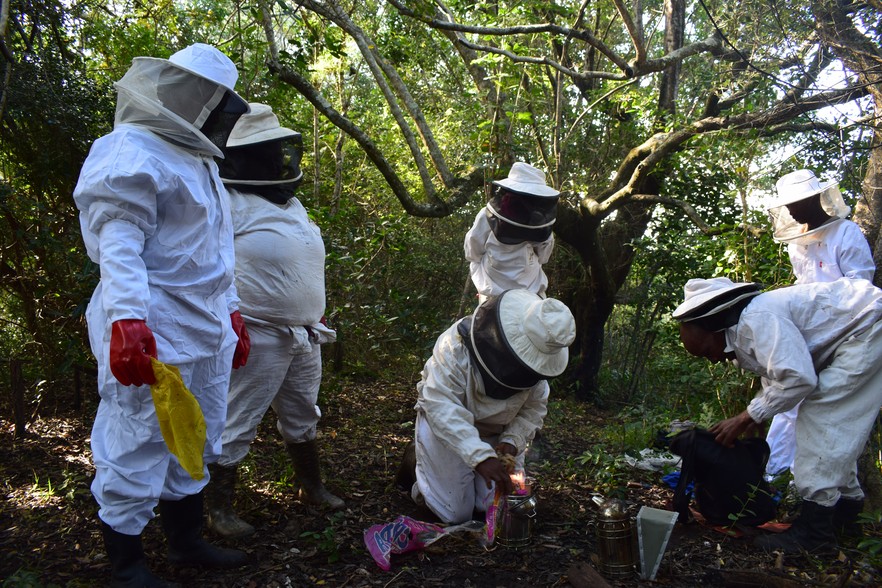
This led a group of women from Cwebeni to visit the Phila Beekeeping Cooperative, formed in 2003 by eight women from Zibungu village in Libode, about an hour’s drive from Cwebeni on the R61.
“We didn’t understand that you could farm bees, but after we visited the women in Libode, I knew we could do it,” says 62-year-old Nolulamile Lazola, another beekeeper from Cwebeni.
A year after its formation, the cooperative started receiving funding from Pick ‘n Pay.
Leonora Sauls, head of philanthropy at the Ackerman Foundation, said the foundation partnered with the community to help “alleviate unemployment” in Cwebeni and “to encourage and support their enterprising spirit, in the hope that it would result in self-reliance”.
Central to the foundation’s support for the cooperative was training. Wouter Dell, a professional bee-keeper from Cape Town, was sent to help train the members and set up a processing facility for the honey.
Dell has over two decades of experience working with bees, founding BMan, a company specialising in cruelty-free bee removal. He said he first visited Cwebeni in 2010 and travelled there repeatedly over four years to train and educate the villagers about the importance of bees in the local ecosystem.
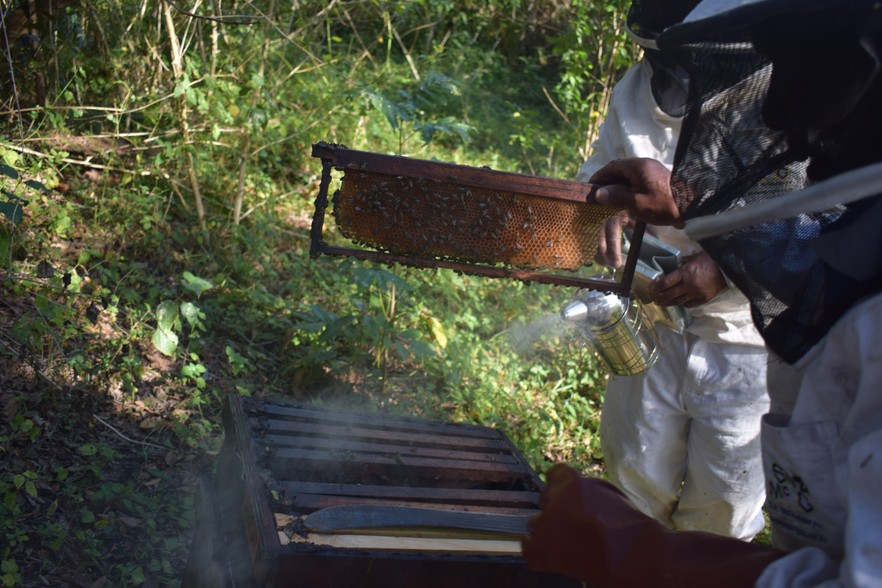
“The concept I used to teach was that if you look after the bees, then the bees will look after you,” Dell told GroundUp.
Mpumapi joked that they were “clueless about bees”.
The cooperative established a training and bottling facility for honey in Cwebeni in 2013, repurposing an unused community building. Other funders included the Eastern Cape Development Corporation (ECDC) and the Social Change Assistance Trust (SCAT).
In 2018, the Pick n Pay foundation exited the partnership to allow for community ownership. Tragedy struck on a dry winter night in 2020, when the co-operative’s training and processing facility burnt down with nearly all their equipment. It is unclear how the fire started.
This severely affected the operations of the co-operative and its ability to produce and bottle honey. However, the members have continued at a smaller scale.
“We lost our equipment. It was devastating. We now don’t have any place to bottle the honey,” says Lazola.
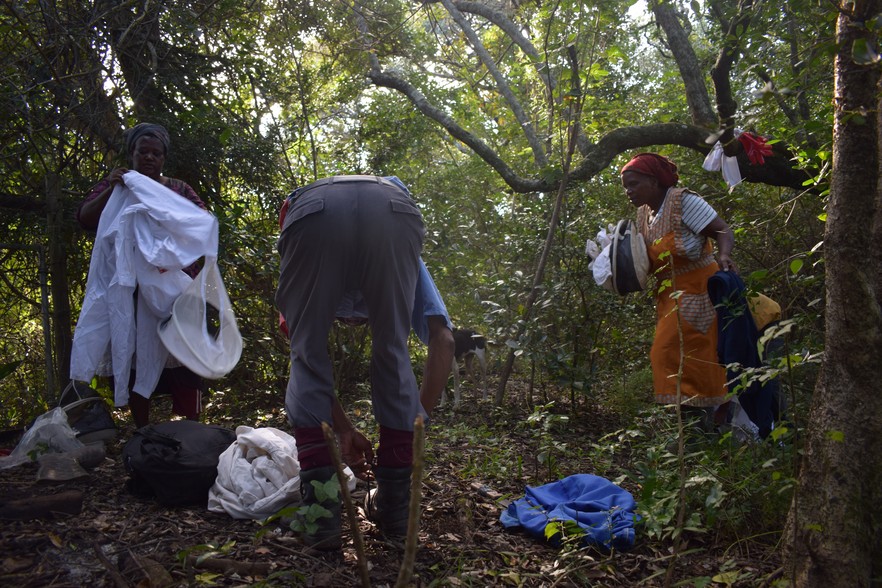
Vovo Qhuzelwa has fond memories of the cooperative’s training and processing facility. “People would come from all parts of the province to visit the centre and learn about bee farming,” he says. Before beekeeping, Qhuzelwa worked as a labourer in Durban. He says he much prefers working with bees, finding it interesting and not as physically demanding.
The cooperative now sells the honey for about R60 per 500ml to nearby Entabeni Hardware stores and to the Umngazi Hotel and Spa.
With some of the beekeepers getting old, they are struggling to walk the long distances and to carry equipment, says Lazola.
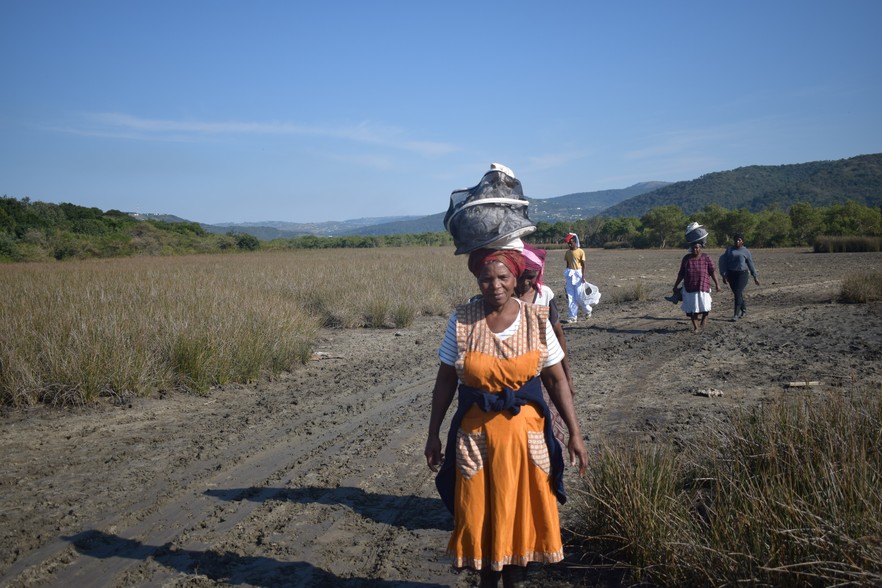
Bee-keeper Nosiseko Klaas hopes the cooperative can grow to support more members of the community. She wants to pass on her skills to the next generation.
“This has helped relieve my poverty, so it is important that the youth also get the opportunity,” says Klaas.
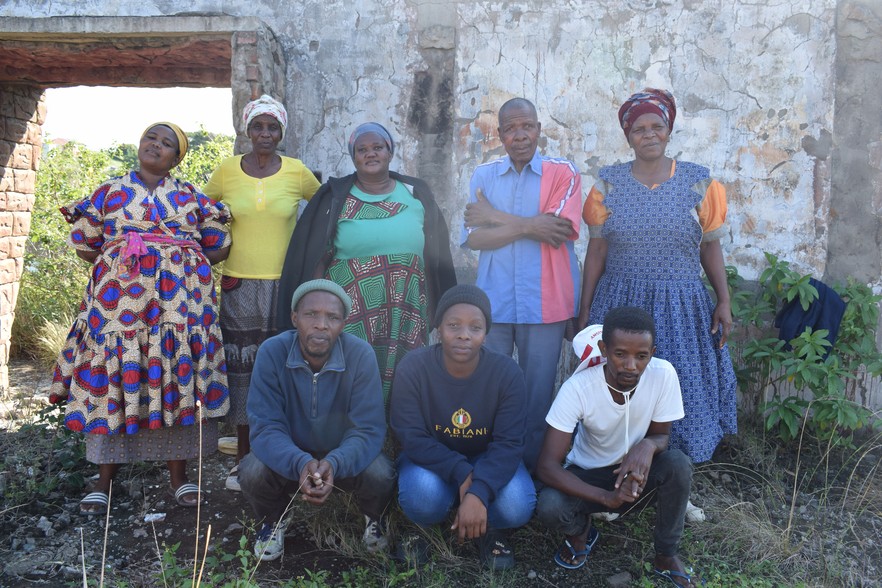
 NSRI Issue Safety Alert for Full Moon Spring Tide AND Today's Winter Solstice
NSRI Issue Safety Alert for Full Moon Spring Tide AND Today's Winter Solstice